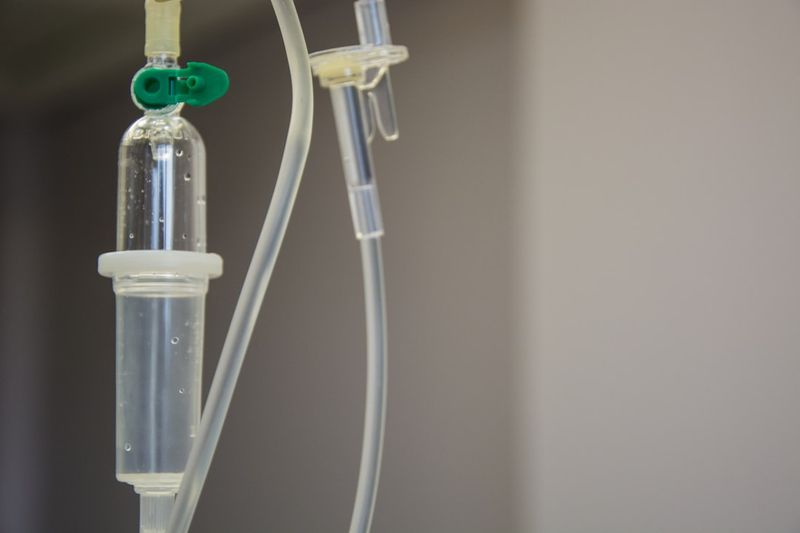Covid-19: The Surprisingly High Number of Fake Health Passes
Economy and Politics
In the midst of the COVID-19 pandemic, the world is grappling with numerous challenges, including the exponential rise in fake health passes. These documents, which are meant to certify that an individual has been vaccinated or recently tested negative for the virus, have become the latest target for scammers and fraudsters.
The problem is not limited to one particular country or region; it has become a global phenomenon. Governments and health authorities around the world have been struggling to keep up with this alarming trend. Recent reports suggest that the number of fake health passes circulating in the market is much higher than initially anticipated.
Several factors contribute to the proliferation of fake health passes. First and foremost, the high demand for these passes is linked to the increased restrictions and limitations imposed on individuals who cannot provide proof of vaccination or negative test results. With the introduction of health pass requirements in various sectors such as travel, hospitality, and even access to certain public places, scammers saw a lucrative opportunity to exploit those desperate for a pass.

Another contributing factor is the ease with which individuals can create counterfeit or fraudulent documents in today’s digital age. Advancements in technology have made it easier for scammers to produce convincing fake health passes that are difficult to distinguish from genuine ones.
Scammers, COVID-19, and the Spread of Fake News
Scammers and fraudsters have not only capitalized on people’s desperation for health passes but have also contributed to the spread of fake news surrounding COVID-19. Disinformation campaigns related to vaccines, testing procedures, and public health measures have created confusion and mistrust among the general population. This misinformation further fuels the demand for fake health passes as some individuals may be misled into believing that getting a pass through illicit means is their only option.
It is crucial to recognize the detrimental consequences of falling victim to these scams. Relying on fake health passes can put individuals at risk of contracting and spreading the virus, as they may wrongly assume they are immune or pose no threat to others. Moreover, supporting the circulation of fake passes undermines the efforts made by governments and health authorities to control the pandemic through vaccination and testing programs.
Addressing the Issue: Combating Scammers and Misinformation
The fight against fake health passes necessitates a multi-faceted approach that combines technology, public awareness, and strong enforcement measures. Governments should invest in technological solutions that enhance the security features of health passes, making them tamper-proof and easier to authenticate. Additionally, public education campaigns should be intensified to raise awareness about the risks associated with fake health passes and the importance of relying on verified information sources.

Furthermore, law enforcement agencies need to collaborate with international partners to track down and apprehend scammers involved in the production and distribution of fake health passes. Strict penalties should be imposed to deter potential offenders and send a clear message that such activities will not be tolerated.
The Ethical Dilemma
While addressing the issue of fake health passes, there is an underlying ethical dilemma to consider. The introduction of health pass requirements has sparked debates about privacy rights, personal freedoms, and vaccine equity. Some argue that vaccine passports infringe upon individual liberties and create a two-tier society, while others support them as a necessary measure to protect public health.
As we navigate this complex landscape, it is essential to strike a balance between protecting public health and ensuring individuals’ rights and freedoms are respected. Policies and initiatives surrounding health passes should prioritize transparency, inclusivity, and accountability to build public trust and legitimacy.
Conclusion
The rise of fake health passes represents a significant challenge in our battle against COVID-19. Addressing this issue requires a collaborative effort from governments, technology developers, law enforcement agencies, and the public. By implementing robust security measures, educating the public, and taking decisive action against scammers, we can mitigate the negative impact of fake health passes and protect the progress made in combating the pandemic.
Moreover, we must not lose sight of the ethical implications of health pass requirements. Striking the right balance between public health protection and personal freedoms is crucial in maintaining societal cohesion and trust.

<< photo by Stephanie Liverani >>
The image is for illustrative purposes only and does not depict the actual situation.
You might want to read !
- Breaking: UFC Cuts Loose 7 Fighters in Latest Roster Shakeup
- LL Cool J Turns Up the Heat by Postponing Tour Dates, Leaving Fans in the Cold
- Off-Ice Troubles Plague Winnipeg Ice Despite On-Ice Success
- False Information Spreads: Alberta Premier Danielle Smith Remains on Facebook, Meta Confirms
- Joe Rogan Declines Tucker Carlson’s First Interview Offer: Exploring the Dynamics of Media Loyalties
- Annie Murphy Says She And ‘Black Mirror’ Co-Star Salma Hayek Are Hollywood’s Dynamic Duo
- Elizabeth Holmes, Once Worth $4.5 Billion, Claims Financial Inability to…




